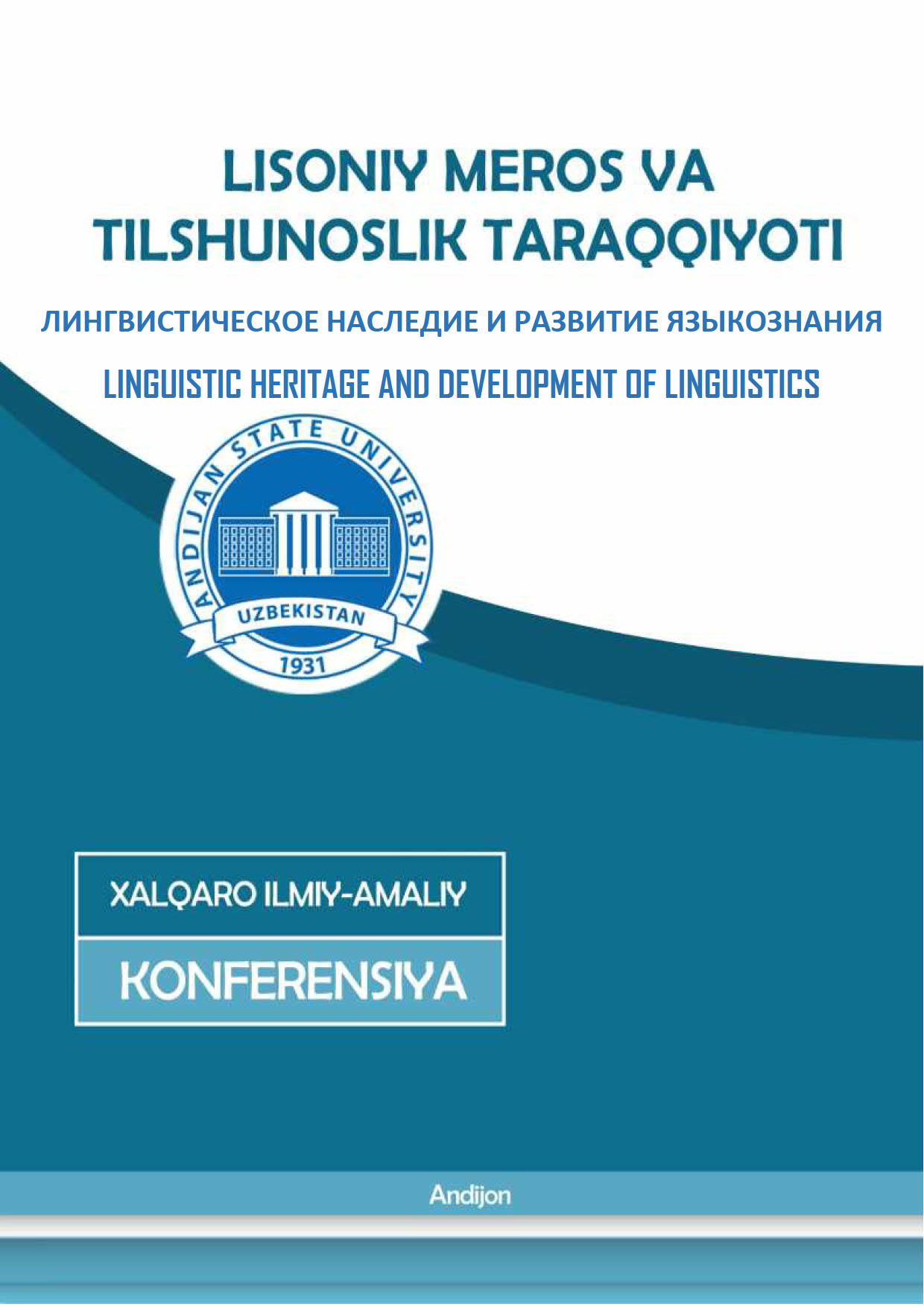INFLUENCE OF CULTURAL, HISTORICAL AND POLITICAL FACTORS ON THE FORMATION OF DIPLOMATIC TERMINOLOGY OF THE RUSSIAN AND UZBEK LANGUAGES
Abstract
This article is devoted to the study of the influence of cultural, historical and political factors on the formation of diplomatic terminology in the Russian and Uzbek languages. As a result of the analysis, some common features and differences in the use of diplomatic terminology in the Russian and Uzbek languages are highlighted, which contributes to a deeper understanding of intercultural communications.
Keywords:
globalization definition diplomatic terminology political system termReferences
Гринев-Гриневич С. В. Терминоведение. Учебное пособие для студентов вузов. М.: Издательсво «Академия», 2008. – 304 стр.
Даниленко В. П. Русская терминология. Опыт лингвистического описания. М.: Наука, 1977. – 246 стр.
Киссинджер Г. Дипломатия. Пер. с англ. В. В. Львова / Послесл. Г. А. Арбатова. М.: Ладомир, 1997. — 848 стр.
Лотте Д. С. Вопросы заимствования иноязычных терминов и терминоэлементов. М.: Наука, 1982. – 151 стр.
Михалькевич Г. Н. Этикет международного общения: Учебное пособие. Минск: Книжный дом, 2004. – 272 стр.
Shamsimuxamedov Isroil. Diplomatik terminlar izohli lug‘ati [Matn] / Izohli lug‘at. – T.: “Donishmand ziyosi”, 2021-yil. 224 b.
Downloads
Published
How to Cite
Issue
Section
License
Copyright (c) 2024 Хасанов Илёсбек Иброхимжонович

This work is licensed under a Creative Commons Attribution 4.0 International License.

